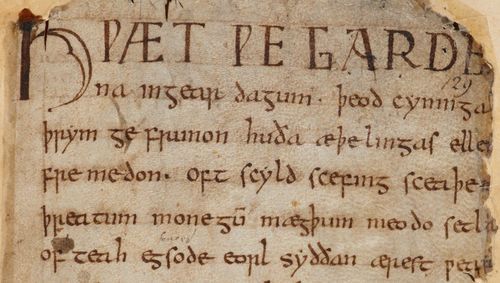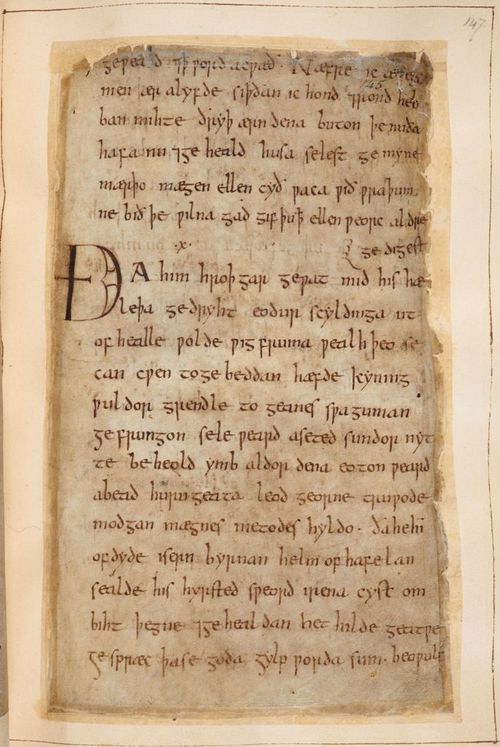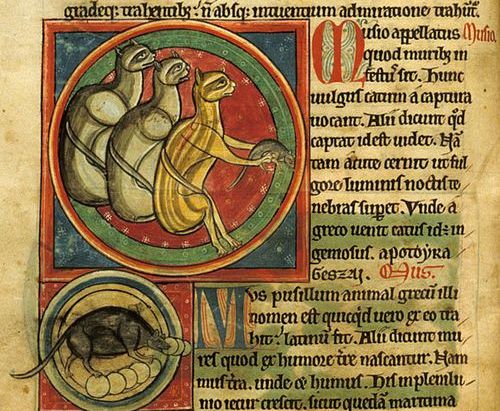Hwæt! Beowulf online
The manuscript of Beowulf, the greatest poem in the Old English language, can now be viewed online for the first time.
11 February 2013The manuscript of Beowulf, the greatest poem in the Old English language, can now be viewed online for the first time.
11 February 2013Blog series Medieval manuscripts
Made around the year 1000, most likely during the reign of King Æthelred the Unready (978-1016), the manuscript of Beowulf committed to parchment a tale that (in some modern scholars' opinions) had been passed down for centuries, between generations of storytellers.

The opening words of Beowulf, beginning "Hwæt" ("Listen!"): London, British Library, Cotton MS Vitellius A XV, f. 132r.
In its present state, the poem, named after its hero Beowulf, contains more than 3,000 lines, and divides conventionally into three comparatively equal sections: Beowulf's struggle with the monster, Grendel; the revenge of Grendel's mother; and Beowulf's final contest with a dragon, which was guarding a hoard of treasure. What marks out Beowulf is the gripping and highly developed story, and the richness of its language.

Although damaged by fire in 1731, much of its text remains readable. Here the poem recounts Beowulf's preparations for battle with Grendel: London, British Library, Cotton MS Vitellius A XV, f. 147r.
Known sometimes as the 'Nowell Codex', after its erstwhile owner Laurence Nowell (d. c. 1570), the Beowulf-manuscript entered the library of Sir Robert Cotton (d. 1631), and still retains his pressmark of Cotton MS Vitellius A XV (the 15th item on the 1st shelf of a bookpress named after the Roman emperor Vitellius).
Cotton's collection was bequeathed to the nation in 1702, and formed one of the foundation collections of the British Museum in 1753.
Beowulf is now in the safe-keeping of the British Library and we are hugely proud to be able to share it with you.

This blog is part of our Medieval manuscripts series, exploring the British Library's world-class collections of manuscripts – including papyri, medieval illuminated manuscripts and early modern state papers.
Our Ancient, Medieval and Early Modern Manuscripts series promotes the work of our curators, who are responsible for these items and thousands more.
Discover medieval historical and literary manuscripts, charters and seals, and early modern manuscripts, from Homer to the Codex Sinaiticus, from Beowulf to Chaucer, and from Magna Carta to the papers of Henry VIII and Elizabeth I.

You can access millions of collection items for free. Including books, newspapers, maps, sound recordings, photographs, patents and stamps.